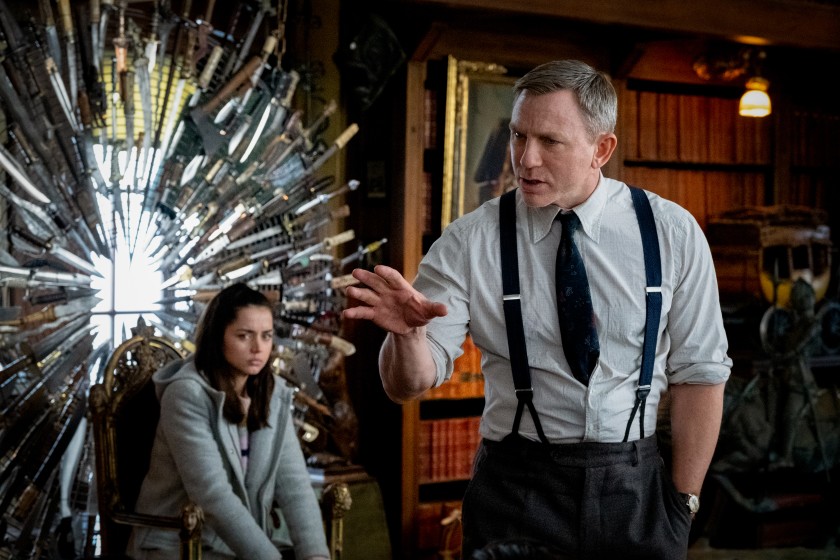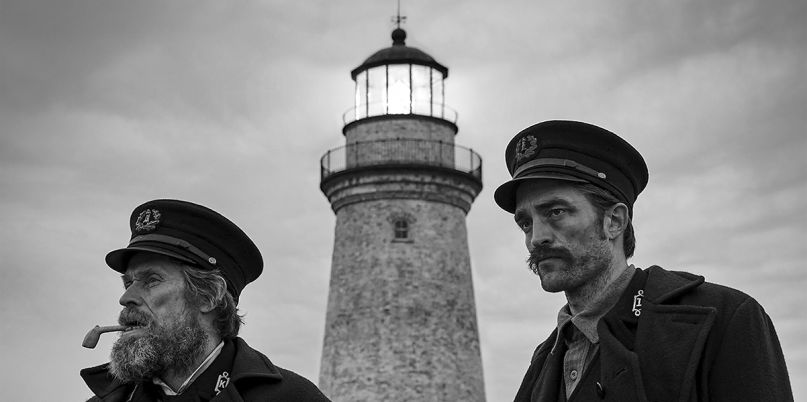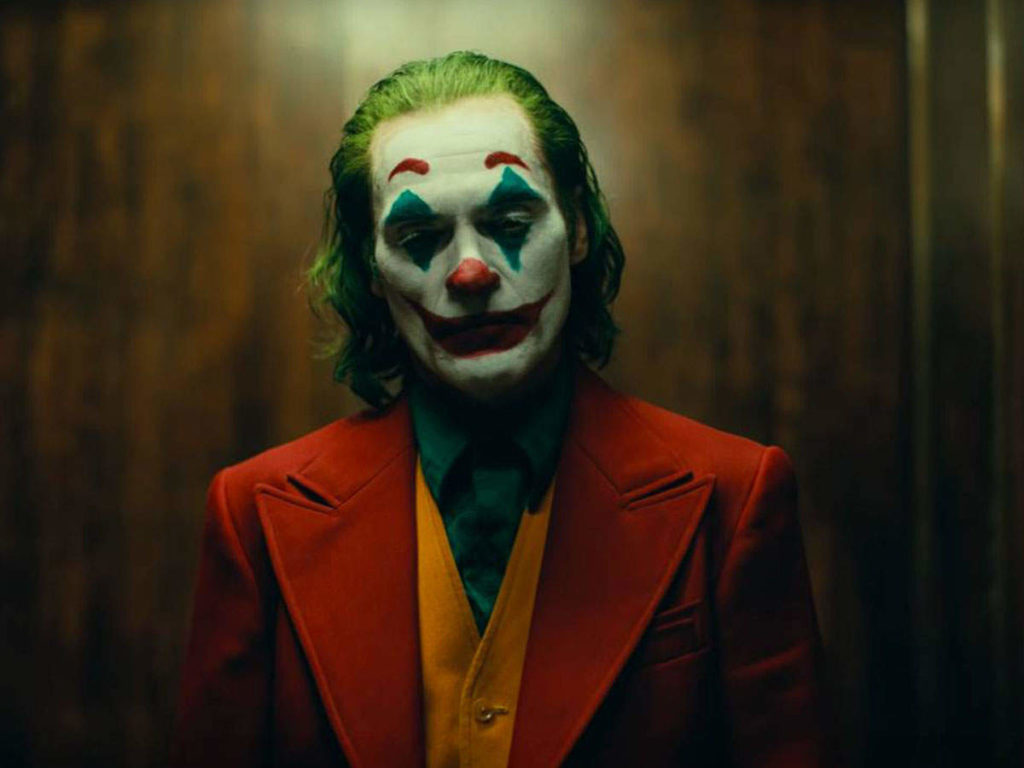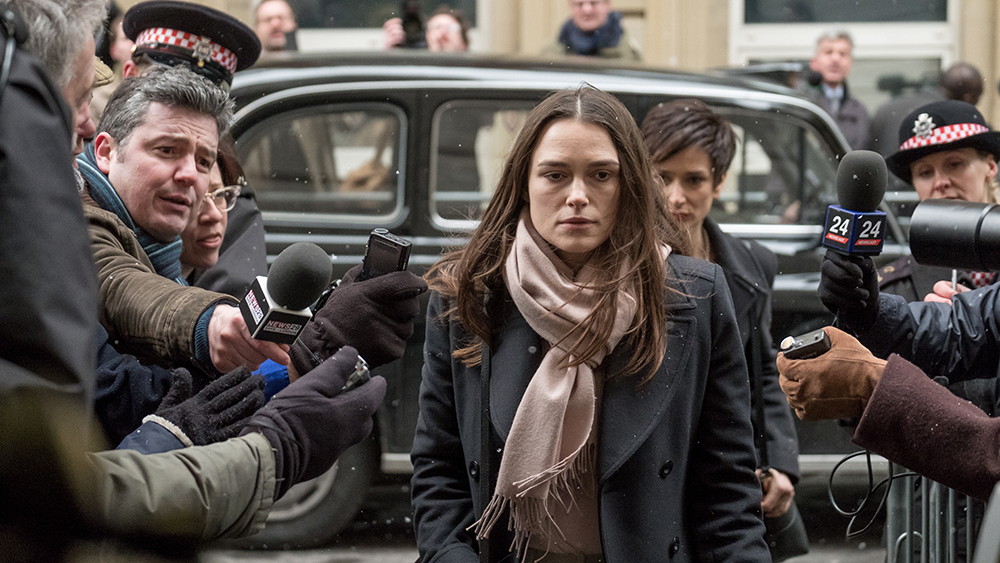Knives Out: Murder Most Foul, Movie-Making Most Divine

There are a great many significant clues in Knives Out—a pair of blood-spattered sneakers, a set of muddy footprints, a deadly syringe—but what may be its most meaningful artifact has little to do with its labyrinthine plot. I’m speaking of the Panasonic pop-up VCR, the ancient device whose grainy security footage may hold critical information, if the investigators can just extract the damn tape from the machine. A relic from an earlier era when Betamax was still a contender and consumers had to select between EP and SP, the Panasonic’s presence would seem to brand this film as a throwback, a nostalgic hymn to cinema’s halcyon days, when mid-budget studio productions ruled the day and superheroes were relegated to the pages of the comic book.
To be sure, Knives Out is laden with analog pleasures: sudden rack focuses; portentous musical cues; dizzying flashbacks; Chris Evans in knitted sweaters. (OK, that last one might not be old-fashioned, but its appeal is certainly timeless.) Yet it would be a mistake to pigeonhole this bracing new movie, which was written and directed with vigor and wit by Rian Johnson, as an homage to the pictures of yesteryear or as a critique of the contemporary multiplex. Knives Out is too energetic, too entertaining, too celebratory—too much damn fun—to be scolding. And while it may carry a certain classical sensibility, it is also distinctly modern, with an impish tone that couldn’t possibly be deemed traditional. They say they don’t make ’em like they used to, but I’m not sure they ever made them quite like this. Read More




